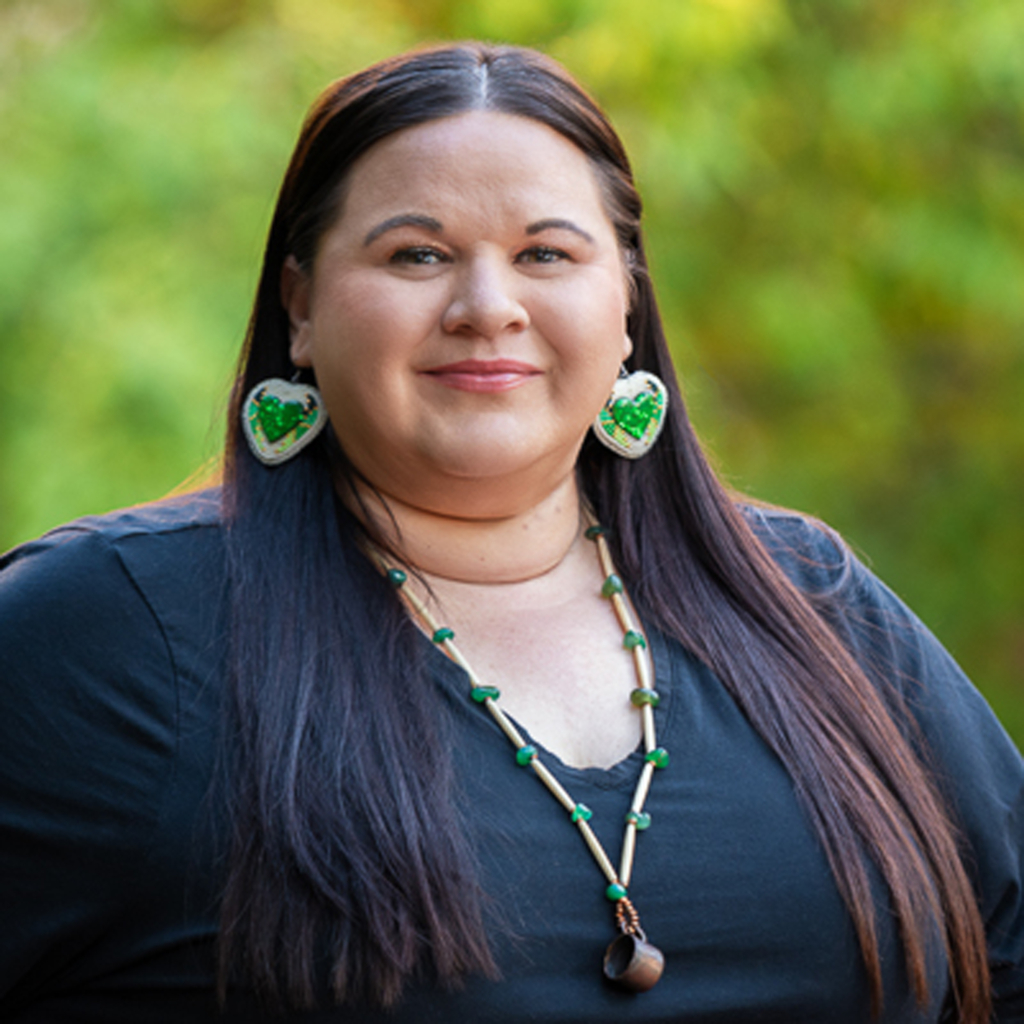After 10 years working in foster care and adoption for tribal Indian Child Welfare departments, Citizen Potawatomi Nation tribal member Kendra Lowden took on a different challenge in the same line of work. In August 2022, the Curley family descendant accepted a position as a senior program associate at the University of Denver’s Graduate School of Social Work and Butler Institute for Families.

The Butler Institute collaborates with the national Capacity Building Center for Tribes to provide resources and act as a point of outreach for tribal child welfare programs across Turtle Island. She feels working in Indian Child Welfare “is the path I was meant to be on.”
“From Alaska to Maine, from Arizona to Florida, we all deal with common issues in tribal communities, and tribal child welfare programs can say the same. It’s difficult work, but with the right supports and resources like the Capacity Building Center for Tribes, it can be a really positive outcome for everyone,” Lowden said.
Trainee to trainer
As a senior program associate, Lowden helps provide and facilitate training for Indian Child Welfare workers across the country. That includes a focus on the importance of cultural connection and how to nurture that growth for the child and the entire family, as well as practical application and precedent surrounding the Indian Child Welfare Act.
“People talk a lot about the Indian Child Welfare Act and protecting cultural connections. But it’s so much more than that because it also is giving families an opportunity to build connections maybe they didn’t have. So that’s why I know that the work done for the Indian Child Welfare Act and advocating for the protection of it, it’s critical to our survival as tribes,” Lowden said.
She acknowledges the social service workforce’s diversity and various paths that lead people to the field and believes that child welfare departments across the country deserve equitable training. Part of that includes “lens training,” such as the Center’s Tribal Child Welfare Practice Path for frontline workers. It helps them understand the unique needs of Native families and how to begin their relationship with them as a social worker. Lowden’s on-the-ground experience has been beneficial to her work with the TCWPP and other projects.
“(ICW work) is emotional. It takes a toll. And I know that firsthand. And that’s why I do feel so proud to get to do the work that I do because I have been in their shoes. All of these tribal child welfare workers that I am able to interact with, I can say, ‘I’ve been there. I know.’ I don’t just have to sympathize. I can emphasize with them that, ‘We hear you, we see you, and we’re here to support you,’” she said.
Lowden has enjoyed her role expanding to support some of the Capacity Building Center’s other programs, including peer groups, leadership academies, virtual webinars and more.
“An eagle can see all around them, and what I strive to have is an eagle’s view in the work that I do. I’ve done the micro work, the direct practice, and now I’m in more of that macro work of tribal child welfare. And I like being able to help people and just have conversations,” she said.
Practice to research
In fall 2021, Lowden decided to continue her education and enrolled in the Doctorate of Education program at Southern Nazarene University in Bethany, Oklahoma.
“It is very time-consuming,” Lowden said. “You do have to sacrifice a lot, but I know that the education I’m receiving and how I’m going to be using that moving forward is going to benefit me and, I think, the tribal community.”
She plans to use her degree to further her mission of spreading training to tribal child welfare departments and improving the curriculum. Lowden still believes support remains the best way to overcome obstacles for staff and families.
“I know that I could have used more support in the beginning of my career, and I had great people around me. But just having more resources and more training opportunities, all it does is help you. It helps you develop to be a stronger advocate for families, a stronger advocate in court, and just overall a stronger person,” she said.
Lowden plans for her research to focus on transracial adoptions and cultural training and its effect on parents’ views on adopting a child of another race. She emphasized that while those looking to bring a child into their home “lead with their heart first,” the potential effects of removing them from their culture warrants discussion during the process.
“We can’t discount that adopting children from another culture does have dynamics that have to be addressed within families,” Lowden said. “I’m wanting to really dig into, did the foster and adoptive families receive adequate training and support before they took placement? And then also after they’ve taken placement and even after adoption, if adoption has occurred.”
Unlike many of her past clients, Lowden considers herself blessed for exposure to both her Potawatomi and Osage heritage and culture since birth. Her passion for her work in Indian Child Welfare stems from the desire for Native and Indigenous peoples to deepen their connections and pass them to the next generation.
“I’m a different person because of the career that I chose,” she said. “While I’m sure I would have been happy with another career path, it’s the person that I developed into, and at the root of it are the families and children that I’ve worked with over the past decade. They’ve made a difference in my life and a difference in my heart.”
Lowden was named a recipient of a prestigious Cobell Scholarship in fall 2022. Her expected graduation date from Southern Nazarene University is fall 2024.
Find out more about the Butler Institute for Families at socialwork.du.edu/butler.
